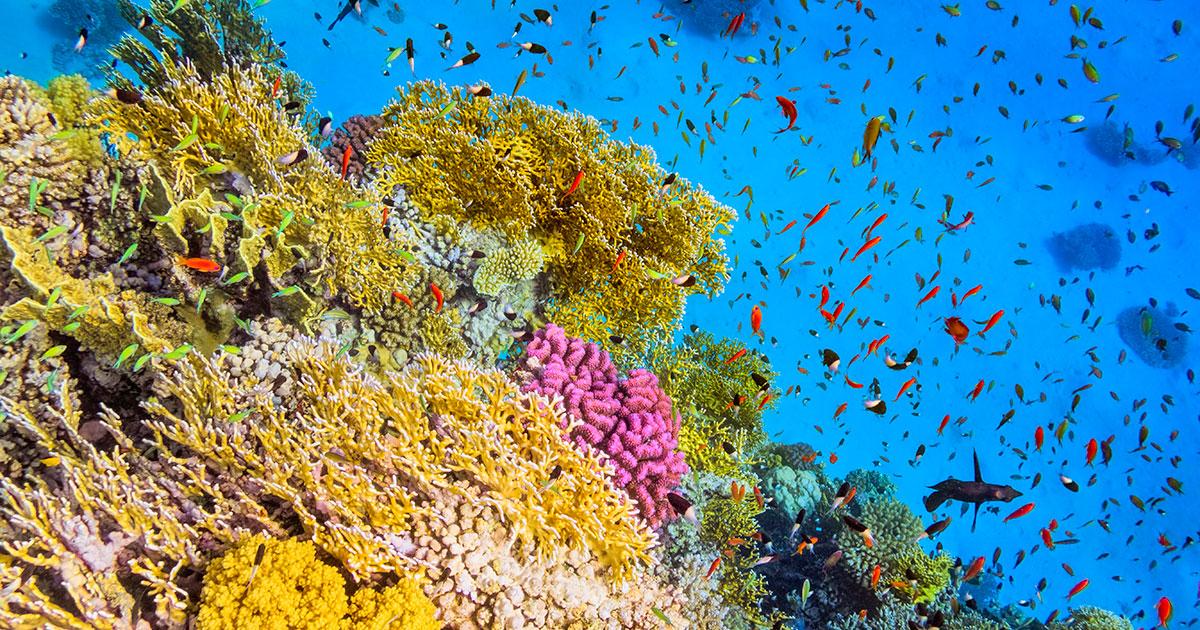Ocean Species Declining at Unprecedent Rates, According to UN Report

More than 40% of amphibian species, almost 33% of reforming corals and more than a third of all marine mammals are threatened, according to a new report from the United Nations’ Intergovernmental Science-Policy Platform on Biodiversity and Ecosystem Services (IPBES), the summary of which was approved at the 7th session of the IPBES Plenary, meeting (29 April – 4 May, 2019) in Paris.
Key findings for Oceans and Fishing include:
- 33%: marine fish stocks in 2015 being harvested at unsustainable levels; 60% are maximally sustainably fished; 7% are underfished
- >55%: ocean area covered by industrial fishing
- 3-10%: projected decrease in ocean net primary production due to climate change alone by the end of the century
- 3-25%: projected decrease in fish biomass by the end of the century in low and high climate warming scenarios, respectively
- >90%: proportion of the global commercial fishers accounted for by small scale fisheries (over 30 million people) - representing nearly 50% of global fish catch
- Up to 33%: estimated share in 2011 of world's reported fish catch that is illegal, unreported or unregulated
- >10%: decrease per decade in the extent of seagrass meadows from 1970-2000
- +/-50%: live coral cover of reefs lost since 1870s
- 100-300 million: people in coastal areas at increased risk due to loss of coastal habitat protection
- 400: low oxygen (hypoxic) coastal ecosystem 'dead zones' caused by fertilizers, affecting >245,000 km2
- 29%: average reduction in the extinction risk for mammals and birds in 109 countries thanks to conservation investments from 1996 to 2008; the extinction risk of birds, mammals and amphibians would have been at least 20% greater without conservation action in recent decade
- >107: highly threatened birds, mammals and reptiles estimated to have benefitted from the eradication of invasive mammals on islands?
The Report also found that plastic pollution has increased tenfold since 1980, 300-400 million tons of heavy metals, solvents, toxic sludge and other wastes from industrial facilities are dumped annually into the world's waters, and fertilizers entering coastal ecosystems have produced dead zones that globally amount to an area greater than that of the United Kingdom.
Solutions
In terms of solutions for marine systems, the Report highlights, among others: ecosystem-based approaches to fisheries management; spatial planning; effective quotas; marine protected areas; protecting and managing key marine biodiversity areas; reducing run- off pollution into oceans and working closely with producers and consumers.
1 Million Species Threated with Extinction
Of course, it isn’t all about oceans. The Report also presents findings on fresh-water and land-based habitats. Overall, it finds that around 1 million animal and plant species are now threatened with extinction, many within decades, more than ever before in human history.
“The overwhelming evidence of the IPBES Global Assessment, from a wide range of different fields of knowledge, presents an ominous picture,” said IPBES Chair, Sir Robert Watson. “The health of ecosystems on which we and all other species depend is deteriorating more rapidly than ever. We are eroding the very foundations of our economies, livelihoods, food security, health and quality of life worldwide.”
“The Report also tells us that it is not too late to make a difference, but only if we start now at every level from local to global,” he said. “Through ‘transformative change’, nature can still be conserved, restored and used sustainably – this is also key to meeting most other global goals. By transformative change, we mean a fundamental, system-wide reorganization across technological, economic and social factors, including paradigms, goals and values.”
For a full summary of the report, visit our partners at ECO Magazine.

